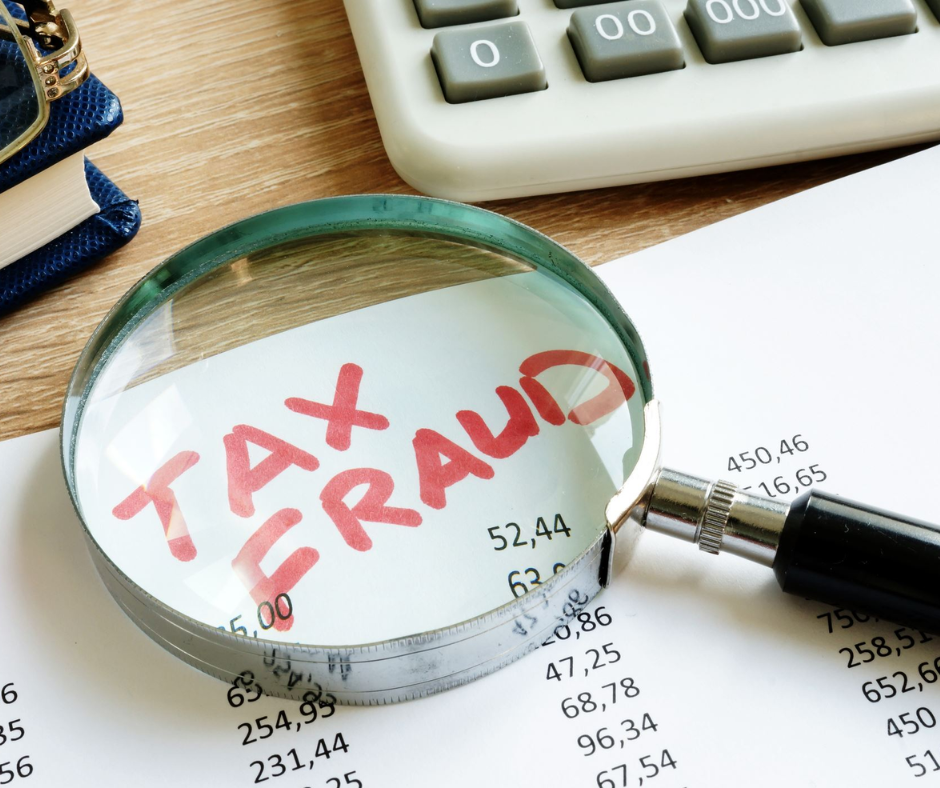Don’t let your tax return raise red flags with the IRS! Understanding Badges of Fraud can keep you out of hot water and help you file with confidence. Here’s a quick, guide to what they are, why they matter, and how to steer clear of trouble!

What’s a Badge of Fraud?
Think of these as warning signs the IRS looks for to spot potential tax evasion or shady behavior. They’re like clues that suggest someone might be intentionally dodging their taxes. While one badge alone won’t get you in trouble, a pattern of them could lead to serious consequences—like audits, penalties, or even criminal charges.
Common Red Flags the IRS Watches For
Here are some behaviors that could put you on the IRS’s radar:
- Hiding Income: Leaving out cash payments, side gigs, or entire income sources.
- Fake Deductions: Claiming personal expenses (like that new TV) as “business costs.”
- Cooking the Books: Keeping two sets of financial records or faking documents.
- Hiding Assets: Stashing money in secret bank accounts or concealing property.
- Cash Overload: Using excessive cash to avoid a paper trail.
- Sketchy Excuses: Giving inconsistent or unbelievable stories about your finances.
- Destroying Evidence: Shredding records or dodging IRS questions.
- Not Filing Returns: Earning taxable income but “forgetting” to file.
- Illegal Activities: Hiding income from questionable sources.
How Does the IRS Use These Badges?
IRS agents are like tax detectives—they’re trained to spot these red flags during audits or reviews. If they notice suspicious patterns, they dig deeper. Multiple badges could trigger:
- A full-blown audit to scrutinize your return.
- A referral to the IRS’s criminal investigation unit (yikes!).
- Proof of “affirmative acts of fraud”—deliberate moves to cheat the system.
What Does This Mean for You?
If the IRS spots multiple badges in your return, you could face:
- Civil fraud penalties (think hefty fines—up to 75% of unpaid taxes!).
- Back taxes plus interest.
- Criminal charges in serious cases (rare but possible).
Got an IRS audit letter mentioning fraud concerns? Don’t panic, but don’t ignore it! Contact a tax professional or attorney ASAP to navigate the process.
How to Stay Safe
- Be Honest: Report all income, even from side hustles or cash payments.
- Keep Good Records: Save receipts, bank statements, and accurate books.
- Double-Check Deductions: Only claim legitimate business expenses.
- Cooperate with the IRS: If audited, be transparent and responsive.
- Get Help if Needed: A tax pro can guide you through complex filings.
The Bottom Line
IRS Badges of Fraud are like warning lights on your tax dashboard. Avoid shady shortcuts, keep your records straight, and file honestly to stay in the clear. Nobody wants an IRS audit knocking at their door! Let’s keep tax season stress-free and compliant.
